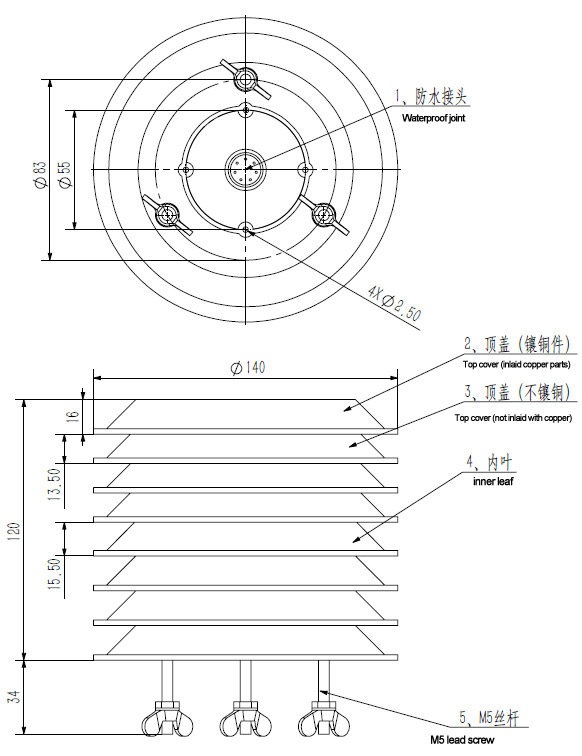

— Blogs —
—Products—
 Consumer hotline +8618073152920
Consumer hotline +8618073152920 WhatsApp:+8615367865107
Address:Room 102, District D, Houhu Industrial Park, Yuelu District, Changsha City, Hunan Province, China
Product knowledge
Time:2024-01-24 17:00:27 Popularity:930
The Agricultural CO2 Sensor is a device used to detect the concentration of carbon dioxide (CO2) in the agricultural environment. In agricultural production, carbon dioxide is one of the important gases required for plants to carry out photosynthesis, which is the process of converting light energy into chemical energy, and is crucial for the growth and development of plants. Therefore, agricultural carbon dioxide sensors play an important role in agricultural production.
Agricultural carbon dioxide sensors usually use non-dispersive infrared (NDIR) gas sensor technology, which has the advantages of good selectivity, long life, little interference from the environment and high accuracy. In agricultural production, agricultural CO2 sensors can be used to monitor the CO2 concentration in greenhouses, livestock farms, aquaculture systems, and other places, in order to help farmers better understand the environmental conditions, control the environmental parameters, and improve the growth quality and yield of crops.
For example, in greenhouse greenhouses, the level of carbon dioxide concentration directly affects the photosynthetic efficiency and growth rate of plants. By using agricultural carbon dioxide sensors, farmers can monitor the carbon dioxide concentration in the greenhouse in real time and adjust measures such as ventilation or fertilization as needed to ensure optimal environmental conditions for plant growth.
In addition, agricultural carbon dioxide sensors can be used to monitor other gas parameters related to plant growth, such as oxygen and nitrogen, to help provide a comprehensive understanding of the plant's growing environment. With the continuous development of science and technology, agricultural CO2 sensors are also being improved and perfected, and in the future they will be more intelligent, precise and multifunctional to provide more effective support for agricultural production.

1. Optimized plant growth: Maintaining proper CO2 levels enhances photosynthesis, leading to improved crop yields and quality.
2. Energy efficiency: Sensors help farmers recognize when to adjust CO2 levels, thereby preventing unnecessary energy consumption by ventilation or CO2 recharge systems.
3. Pest and disease management: CO2 levels affect plant susceptibility to pests and diseases. Monitoring CO2 levels helps farmers create environments that minimize these risks.
4. Climate control: CO2 sensors are an important part of automatic climate control systems in greenhouses and indoor growing setups. They ensure that CO2 levels remain within the desired range for optimal plant growth.
5. Data-driven decision-making: By collecting and analyzing CO2 data over time, farmers can gain insight into trends and patterns to make data-driven decisions to maximize agricultural productivity and sustainability.
Overall, agricultural CO2 sensors are an invaluable tool in modern farming practices, helping farmers optimize plant growth, conserve energy, and make informed decisions to improve agricultural productivity and sustainability.
Related recommendations
Sensors & Weather Stations Catalog
Agriculture Sensors and Weather Stations Catalog-NiuBoL.pdf
Weather Stations Catalog-NiuBoL.pdf
Related products
 Combined air temperature and relative humidity sensor
Combined air temperature and relative humidity sensor Soil Moisture Temperature sensor for irrigation
Soil Moisture Temperature sensor for irrigation Soil pH sensor RS485 soil Testing instrument soil ph meter for agriculture
Soil pH sensor RS485 soil Testing instrument soil ph meter for agriculture Wind Speed sensor Output Modbus/RS485/Analog/0-5V/4-20mA
Wind Speed sensor Output Modbus/RS485/Analog/0-5V/4-20mA Tipping bucket rain gauge for weather monitoring auto rainfall sensor RS485/Outdoor/stainless steel
Tipping bucket rain gauge for weather monitoring auto rainfall sensor RS485/Outdoor/stainless steel Pyranometer Solar Radiation Sensor 4-20mA/RS485
Pyranometer Solar Radiation Sensor 4-20mA/RS485
Screenshot, WhatsApp to identify the QR code
WhatsApp number:+8615367865107
(Click on WhatsApp to copy and add friends)